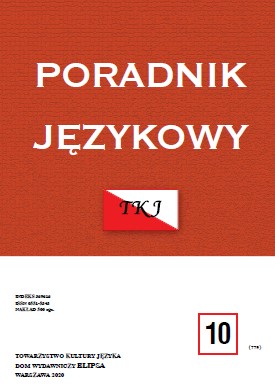ROZWAŻANIA NAD ETYMOLOGIĄ GROMU
DISCUSSIONS ON THE ETYMOLOGY OF GROM (THUNDER)
Author(s): Krzysztof Tomasz WitczakContributor(s): Monika Czarnecka (Translator)
Subject(s): Theoretical Linguistics, Lexis, Semantics, Comparative Linguistics, Western Slavic Languages, Baltic Languages, Philology
Published by: Dom Wydawniczy ELIPSA
Keywords: Balto-Slavic languages; etymology; Greek-Slavic isoglosses; Indo- European languages; semantics; word-formation;
Summary/Abstract: The Polish appellative grom m. ‘thunderclap’ (< Proto-Slavic *gromъ m. ‘thunder, thunderclap, roar of a thunder’) should be associated with Greek βρόμος m. ‘any loud noise; crackling of fire; roar of a thunder; roaring of a storm; rage, fury’. Both these nouns derive from the Proto-Indo-European archetype *gu̯rómos m. ‘loud noise; thunder, thunderclap, roar of a thunder’ (originally nomen actionis with the meaning ‘roaring; thundering’, derived from the root *gu̯rem- ‘to roar, to thunder’, cf. Gk. βρέμω ‘to roar; to clash, ring (of arms); to shout, rage (of men)’, pol. grzmieć ‘to thunder’). The comparison of PSl. *gromъ with Gk. χρόμος m. ‘neighing or whinnying (of horse)’ is semantically doubtful.
Journal: Poradnik Językowy
- Issue Year: 2020
- Issue No: 10
- Page Range: 9-19
- Page Count: 11
- Language: Polish
- Content File-PDF

